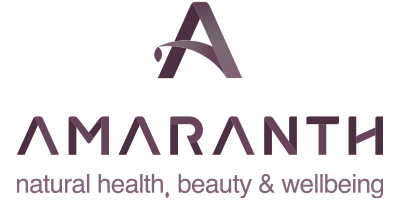Can natural remedies and diet help long COVID and post viral fatigue?

This a question we have been asked a lot over the last few months and we know that many of you are really struggling to get your energy back after having COVID.
Unfortunately, we can’t give a specific answer as there is still so much to learn about the disease and research to be done into treatment for post COVID symptoms. We can, however, look at what we do know, some of the mechanisms of the virus and how other viruses respond, to find clues and make some suggestions.
When COVID enters the body, the immune system launches an attack and sets off producing and releasing specific immune cells. This immune response in turn triggers the release of signalling molecules that modulate the response to infection via inflammation. There is evidence that elevated levels of these molecules have been associated with coronavirus disease progression(1) and more serious cases may be related to this inflammatory process becoming out of control leading to systemic inflammation. There is also a thought that an extremely elevated histamine response may be contributing. This is still being investigated but may in future give evidence that natural histamine balancers (such as Vitamin C) could be helpful.
Given that the immune and inflammatory response is central to COVID infection, it is key to consider this in the recovery. We know that certain health conditions, along with diet and lifestyle choices can contribute to inflammation in the body, if inflammation levels are high pre COVID, it becomes even more important to balance these to normal levels post COVID. This can take time but continued elevated levels of inflammation may be an important factor in why some people experience long COVID (2).
The good news is that certain types of foods, lifestyle techniques and supplements have been found to support a healthy balanced immune and inflammatory response. The following suggestions are things that you can adopt to support your recovery and your general health. Of course, this information should not take place of the advice or treatment provided by your GP or health professional and do check with your healthcare provider before making any dramatic changes to your diet or taking supplements
-
An inflammatory balancing diet.
Your diet, including specific foods, herbs and nutrients can play a big role in the balance of inflammation in the body. Some foods including oily fish rich in omega 3, and the spices turmeric (which includes the inflammatory balancing component, curcumin) and ginger interact specifically with anti-inflammatory pathways and can be helpful in damping an inflammatory response. Fruit and Vegetables are rich in antioxidants, high levels of inflammation can produce oxidative stress and reduce cellular antioxidant capacity (3), so a boost of antioxidants could be vital at this time.
Other foods such as fried foods, too much grain fed red meat (grain fed meat is high in the pro inflammatory omega 6, whereas grass fed meat has a much more balanced omega 3 to omega 6 ratio) and excess sugars can create an oxidative reaction and a proinflammatory response. These foods should be limited to support a healthy recovery.
So for an anti inflammatory diet,
Aim for
- an abundance of fresh fruit and vegetables,
- oily fish, nuts, seeds
- wholegrains such as oats, porridge, brown rice and wholegrain bread.
- Grass fed meat
Try to Reduce
- fried foods, especially deep fried
- grain fed red meat (a couple of times a week is fine)
- sugary drinks, cakes and biscuits
- cured meats such as bacon and sausage.
-
An antioxidant boost
Alongside fruit and vegetables that are rich in antioxidants, you can boost your antioxidant status with other dietary additions. Zinc can be found in seeds, shellfish and liver. Pumpkin seed and flaxseeds are good addition to a daily porridge or smoothie.
Starting the day with a super smoothie by blending berries with greens (spinach or kale), a shot of a fruit and vegetable multi vitamin complex such as Source of Life Gold will also give an antioxidant kick. Adding a clean protein powder will also help to keep blood sugar balanced which is vital in managing energy levels.
Green tea is also a potent antioxidant and a number of studies have considered whether green tea could be a useful tool in balancing the inflammation associated with COVID, one paper concluded ‘EGCG can be considered a potential safe natural supplement to counteract hyper-inflammation growing in COVID-19’ (4). Aim for 3 to 4 cups of green tea per day, flavoured green tea such as Pukka Matcha Mint or Wonderberry Green are good to try if you find green tea too bitter. Planet Paleo Matcha collagen powder is also a good option as the collagen also helps with amino acids that are critical for structure and repair. -
Gut microflora.
Gut health is at the root of all health and disease and there is more and more interest in the important of a diverse gut microflora. Numerous studies have reported on this specifically in relation to COVID. A recent paper published in Jan 2021 reported:
‘Associations between gut microbiota composition, levels of cytokines and inflammatory markers in patients with COVID-19 suggest that the gut microbiome is involved in the magnitude of COVID-19 severity possibly via modulating host immune responses’ Furthermore, the gut microbiota dysbiosis after disease resolution could contribute to persistent symptoms, highlighting a need to understand how gut microorganisms are involved in inflammation and COVID-19’ (5)
A healthy gut microbiome can be encouraged by eating an abundance of fruit and vegetables and also fermented foods such as Kimchi, Sauerkraut, live yoghurt (unflavoured) and Kefir. I would also encourage a probiotic supplement at least in the short term and especially if any antibiotics have been given as a result of a COVID complication. Our team of registered nutritional therapists can advise on the appropriate supplement for you. Book a Free Health Review.
4. Sleep.
Sleep is vital to recovery. During sleep the body is able to rest and repair. Sleep patterns can however be disturbed after a viral infection. If you are struggling with sleep, ideally try to go to bed at the same time each night and allow for at least 8 hours sleep. To prepare for healthy sleep, a warm bath with magnesium salts and lavender oil can be helpful. For some a supplement may be needed, both 5-HTP or Magnesium Glycinate can be considered but we suggest that you discuss this with one our team to check suitability and the correct dosage for you. You may also need a daytime nap, try to keep this at the same time each day and for just an hour or two, so that it does not impact your night sleep.
5. Stress
There is no doubt that we are living in stressful times and any viral infection can cause a big stress response in the body. It is difficult to take away the cause of stress but techniques to lessen the response and reduce cortisol levels can be very helpful in assisting recovery. Try to plan a little time for you into your day, a gentle walk or yoga class, time reading a good book or your favourite magazine or a warm bath can all help. There is also a set of herbs known as adaptogens, adaptogens have a long history of use and are believed to support the bodies response to stress and nourish the nervous system. Ashwagandha and rhodiola are favourites of mine but do talk to us to find out more
6. Strengthen the immune system
It is currently unknown how long the antibody response to COVID lasts. An aim of recovery therefore needs to be to strengthen the immune system against future infection and also the severity of the disease. Along with an anti-inflammatory diet as mentioned, 10 key nutrients vitamins (D, A, C, Folate, B6, B12) and minerals (zinc, iron, copper and selenium) are deemed essential for the normal functioning of the immune system (6), These can be obtained through food but a good multi vitamin supplement may be helpful at this time to assure you are getting enough. This is particularly the case with Vitamin D which can not be obtained though food in the amounts required. Public Health England have now announced that Vitamin D supplementation is essential for all (see our blog on Vitamin D). The quality, absorption, and nutrient levels in multi vitamins can vary dramatically, we will be happy to advise on the one more appropriate for you given your diet and lifestyle
7. Assess your pre COVID health, diet and lifestyle.
Whilst it is important to work on the things mentioned to recover from COVID, you should also recognise that there may be other reasons that your energy levels are low. If you follow a restricted diet such as vegan or vegetarian, have a reduced appetite or if you have been under stress for a long period for time, for example. Consideration of the nutrients required for normal energy creation and red blood cell pathways are also important. Certain health conditions will also impact your energy levels. Our team can help you consider these factors and provide personalised suggestions.
Supplements
As we have noted, specific nutrients may be helpful in your recovery. Supplements are used to provide an extra dose of the nutrients or herbs mentioned above. You should always discuss supplements with your health care practitioner and also get advice as to the dosage, form and quality of supplements you are taking. You can book a free call with a registered nutritionist at Amaranth :
A supplement protocol may include :
- Probiotics to support healthy gut microbiota.
- A high quality multi vitamin boost, ideally one containing fruit and vegetable concentrates and good levels of antioxidant nutrients beta carotene, vitamin C and zinc
- Vitamin D
- Natural anti-inflammatory herbs. Probably the most well know is Curcumin which is the active extract from turmeric. Quercetin, ginger and Boswellia also have inflammatory balancing actions.
- Additional sleep or stress support such as herbal adaptogens.
This subject is obviously complex, presentation of the virus is different in everyone and we all have a different health history which needs to be considered. Our team of registered nutritionists can help you understand this in more detail. You can book a free initial health review through our website and we also offer in depth one to one consultations and diagnostic testing.
Talk to the team to find out about full consultations by calling 0161 439 9856
References
- Cytokine Storms: Understanding COVID-19 (nih.gov)
- Likelihood of severe and ‘long’ COVID may be established very early on following infection | University of Cambridge
- Chronic inflammation and oxidative stress as a major cause of age-related diseases and cancer - PubMed (nih.gov)
- Protective Effect of Epigallocatechin-3-Gallate (EGCG) in Diseases with Uncontrolled Immune Activation: Could Such a Scenario Be Helpful to Counteract COVID-19? (nih.gov)
- Original research: Gut microbiota composition reflects disease severity and dysfunctional immune responses in patients with COVID-19 (nih.gov)
- Current State of Evidence: Influence of Nutritional and Nutrigenetic Factors on Immunity in the COVID-19 Pandemic Framework https://pubmed.ncbi.nlm.nih.gov/32911778/
